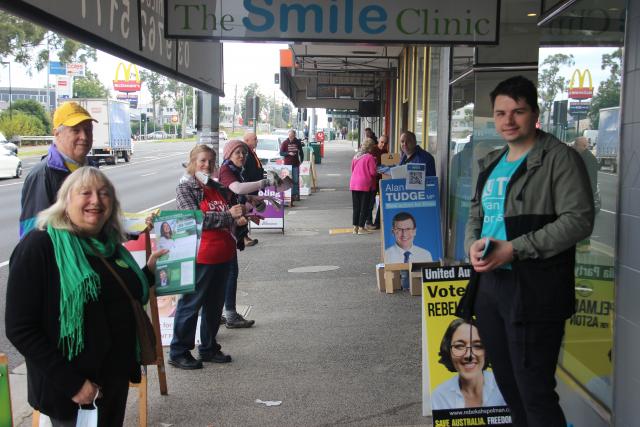By Parker McKenzie
A year ago, when Tony Smith was still a Member of Parliament, it would have been unthinkable to be days out from a federal election with the Liberal Party fighting to keep the seat of Casey.
Mr Smith was a popular incumbent within parliament and at home, having won seven consecutive elections by a comfortable margin. Casey has received little attention from national media because it was never supposed to be a battlefield.
Labor candidate for Casey in 2019 Bill Brindle described Mr Smith as the “the best Speaker of the House in my living memory” despite hailing from different parties, showing the respect he earned throughout his decade in the House of Representatives.
When he announced his retirement in November 2021, which proved to be just six months before the federal election, a vacuum —for others an opportunity — presented itself.
11 candidates from across the political spectrum nominated for Casey, the equal largest field of candidates alongside the 1998 election.
Mr Brindle, an engineer and small business owner, was again chosen by the Labor Party to try to win a seat it hasn’t held since 1984 when Peter Steedman was the Casey MP for two years.
The Liberal Party pre-selection was a fiercely fought process, with local businessman Aaron Violi taking 100 of the 254 votes in the final round to win the nomination to replace the venerated Mr Smith.
Mr Violi previously worked as an advisor to Senator Patterson, though he has been eager to point out he has spent more time working in local business than his few months as a political staffer.
Jenny Game, like Mr Brindle, again contested the seat for the Greens Party after running in 2019. The Greens have campaigned in Casey and for the Senate by promising direct action on climate change, adding dental to Medicare and other progressive policies.
A swath of candidates advocating against vaccine mandates and Covid-19 restrictions, hoping to build off disillusion with the major parties during the pandemic, were quick to nominate. These included the United Australia Party’s Anthony Bellve, Paul Murphy from One Nation, Trevor Smith from the Liberal Democrats, Australian Federation Party’s Chris Field and Independent Craig Cole.
Mr Bellve, a retired military officer, plastered the electorate with eye-catching UAP signage to the chagrin of Yarra Ranges Council, whose election rules forbid signage from being attached to power poles and trees.
Independent Claire Ferres Miles, hoping to ride the wave which is likely to elect several independents to Parliament on May 21, was chosen by the newly formed Voices for Casey group. Community-driven Voices campaigns have swept the nation after initial success in Indi, where two consecutive independent candidates have upended what was a safe seat for the Liberal Party.
Peter Sullivan from Derryn Hinch’s Justice Party and the Animal Justice Party’s Andrew Klop closed out a crowded field of candidates jockeying for the once in a decade opportunity to replace a retiring MP.
The Star Mail approached every candidate for a profile piece during the months before the campaign, with Mr Violi, Mr Brindle, Ms Game, Ms Ferres Miles, Mr Bellve and Mr Smith all responding and taking part.
Six weeks is a long-time to be on the campaign trail, chasing after voters and pitching why you should be the person to represent Casey for the next three years. At candidate forums around Casey — from Tecoma to Healesville and online — the community had the opportunity to ask questions of the candidates on their views of the big issues including climate change, a federal integrity commission, storm recovery, national security and the cost of living.
It is easy to be cynical about politics, especially after a two-year period where it has been a lasting and overbearing spectre in our lives. Despite disagreement in policy, beliefs and character, all the candidates interviewed by the Star Mail and who made themselves available for meet the candidate events expressed the same ideals of serving the community and a genuine want to represent the people of Casey.
This ideal has carried over to their volunteers — aside from some mild vandalism of signage, seemingly present in every electorate — who have canvassed shopping centres, sidewalks and pre-polling booths over the last six weeks.
Like his colleagues around Australia, Mr Violi and the Liberal Party promised large spending of federal money in a bid to hold onto the seat. $56.6 million in funding for sports grounds, roads, projects and initiatives has been committed by the party, as a part of more than $3 billion promised nationally throughout the campaign. Mr Brindle has also made several election promises, though they pale in comparison to the extent of his opposition.
Whoever wins on Saturday, they’ll have put in the hard yards and generally avoided the tribalism and the attack first mentality which has infected politics in recent times, a testament to not only the candidates themselves but the people of Casey who will propel them to Parliament House.







